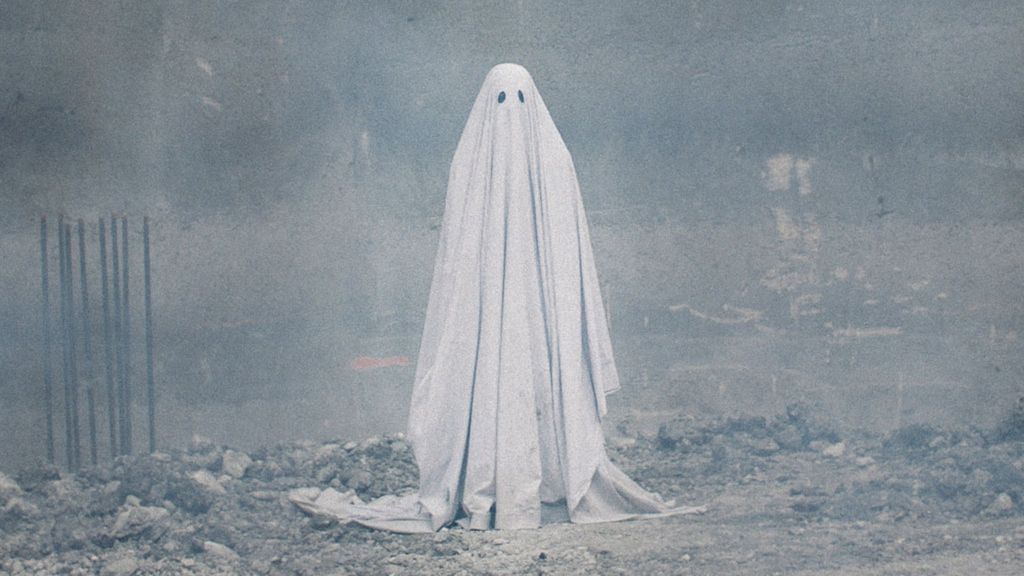
In folklore, a ghost (sometimes known as an apparition, haunt, phantom, poltergeist, shade, specter or spectre, spirit, spook, and wraith) is the soul or spirit of a dead person or animal that can appear to the living. In ghostlore, descriptions of ghosts vary widely from an invisible presence to translucent or barely visible wispy shapes, to realistic, lifelike forms. The deliberate attempt to contact the spirit of a deceased person is known as necromancy, or in spiritism as a séance

The belief in the existence of an afterlife, as well as manifestations of the spirits of the dead, is widespread, dating back to animism or ancestor worship in pre-literate cultures. Certain religious practices—funeral rites, exorcisms, and some practices of spiritualism and ritual magic—are specifically designed to rest the spirits of the dead. Ghosts are generally described as solitary, human-like essences, though stories of ghostly armies and the ghosts of animals rather than humans have also been recounted
The overwhelming consensus of science is that ghosts do not exist.[5] Their existence is impossible to falsify,[5] and ghost hunting has been classified as pseudoscience.[6][7][8] Despite centuries of investigation, there is no scientific evidence that any location is inhabited by spirits of the dead.
List of ghosts
The English word ghost continues Old English gāst, from Proto-Germanic *gaistaz. It is common to West Germanic, but lacking in North Germanic and East Germanic (the equivalent word in Gothic is ahma, Old Norse has andi m., önd f.). The prior Proto-Indo-European form was *ǵʰéysd-os, from the root *ǵʰéysd- denoting "fury, anger" reflected in Old Norse geisa "to rage". The Germanic word is recorded as masculine only, but likely continues a neuter s-stem. The original meaning of the Germanic word would thus have been an animating principle of the mind, in particular capable of excitation and fury (compare óðr). In Germanic paganism, "Germanic Mercury", and the later Odin, was at the same time the conductor of the dead and the "lord of fury" leading the Wild Hunt.

Besides denoting the human spirit or soul, both of the living and the deceased, the Old English word is used as a synonym of Latin spiritus also in the meaning of "breath" or "blast" from the earliest attestations (9th century). It could also denote any good or evil spirit, such as angels and demons; the Anglo-Saxon gospel refers to the demonic possession of Matthew 12:43 as se unclæna gast. Also from the Old English period, the word could denote the spirit of God, viz. the "Holy Ghost".
The synonym spook is a Dutch loanword, akin to Low German spôk (of uncertain etymology); it entered the English language via American English in the 19th century.[16][17][18][19] Alternative words in modern usage include spectre (altn. specter; from Latin spectrum), the Scottish wraith (of obscure origin), phantom (via French ultimately from Greek phantasma, compare fantasy) and apparition. The term shade in classical mythology translates Greek σκιά,[20] or Latin umbra,[21] in reference to the notion of spirits in the Greek underworld. "Haint" is a synonym for ghost used in regional English of the southern United States,[22] and the "haint tale" is a common feature of southern oral and literary tradition.[23] The term poltergeist is a German word, literally a "noisy ghost", for a spirit said to manifest itself by invisibly moving and influencing objects.[24]
The texts in this sentences are going to be ignore
Time 100 (often stylized as TIME 100) is an annual listicle of the 100 most influential people in the world, assembled by the American news magazine Time. First published in 1999 as the result of a debate among American academics, politicians, and journalists, the list is now a highly publicized annual event. Appearing on the list is often seen as an honor, and Time makes it clear that entrants are recognized for changing the world, regardless of the consequences of their actions. The final list of influential individuals is exclusively chosen by Time editors, with nominations coming from the Time 100 alumni and the magazine's international writing staff.[1] Only the winner of the Reader's Poll, conducted days before the official list is revealed, is chosen by the general public.[2] The corresponding commemorative gala is held annually in Manhattan, New York.